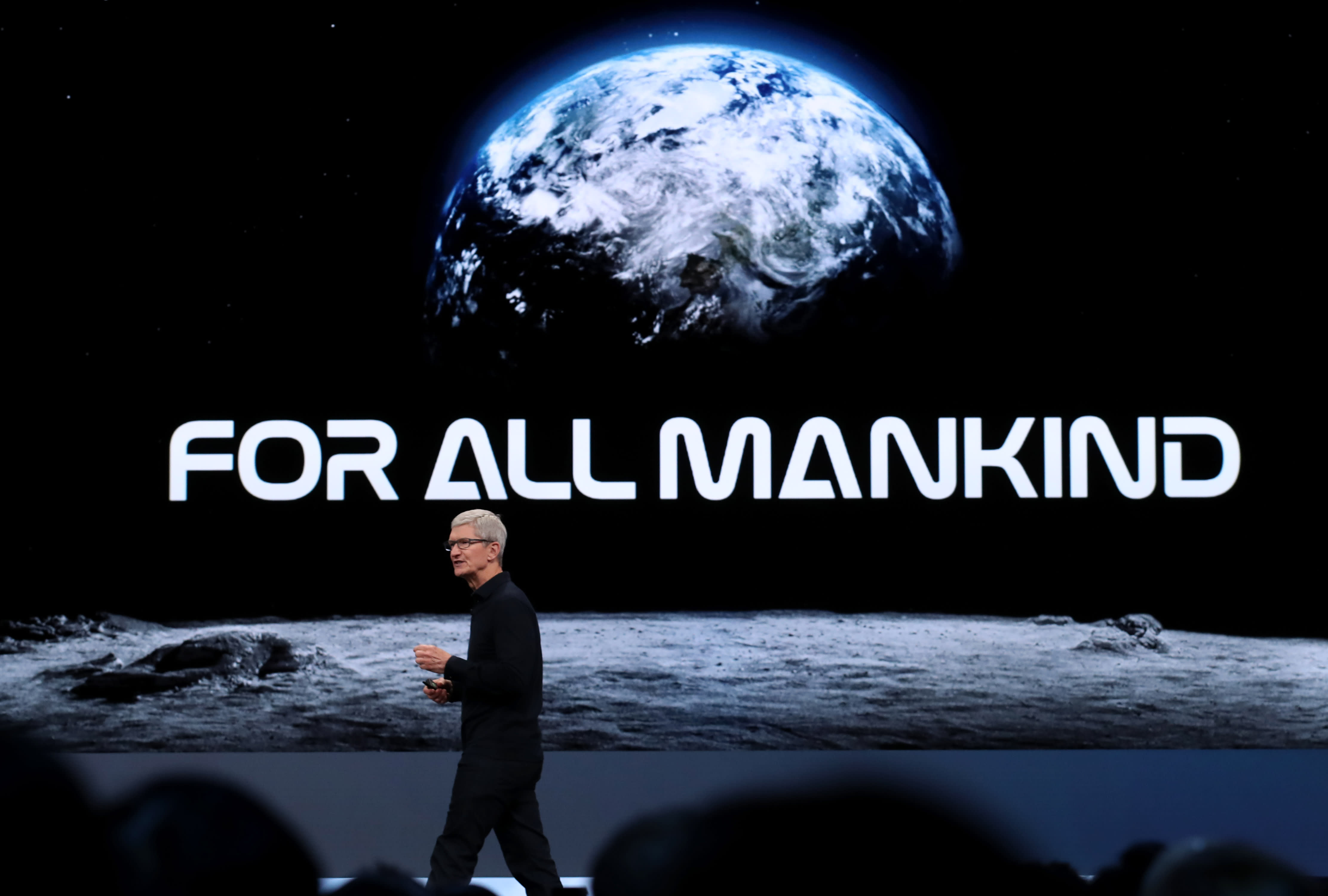Apple didn't just take the moral high ground on privacy, it twisted the knife into Google and... - 3 minutes read

Apple CEO Tim Cook delivers the keynote address during the 2019 Apple Worldwide Developer Conference (WWDC) at the San Jose Convention Center on June 03, 2019 in San Jose, California.
Justin Sullivan | Getty Images News | Getty Images
Beyond the glitz of new iPhone features and a $6,000 new supercomputer, the underlying theme of Apple's annual developers conference on Monday was privacy.
The Apple Watch's new hearing protection feature doesn't record ambient noise around you. Security cameras connected to Apple's HomeKit system will encrypt your video feeds. And so on.
The most significant announcement was "Sign in with Apple," a new option developers can add to their apps so users can log in without having to create a separate username and password. It's similar to all those log in buttons you see across apps and websites from Facebook and Google, except Apple says its solution doesn't gather any personal data from you. In fact, it gives you the option to scramble your email address so a third-party never gets to store it.
But the most significant aspect to Sign in with Apple came to light after Apple's event when eagle-eyed developers noticed that starting with the release of iOS 13 this fall, any app that offers the option to sign in with Google or Facebook will also be required to offer Sign in with Apple as well.
The move doesn't just separate Apple apart from its data-hungry rivals, it twists the knife into them by placing its privacy-focused login option right next to Facebook and Google. The convenience no longer has to come at the expense of your data. Apple took advantage of a huge opportunity to make its massive 900 million+ user base more aware of the privacy practices of its Big Tech rivals. Even if someone loves Facebook and Google, they'll now be prompted with a prominent reminder from Apple that those companies aren't always clear about data collection every time they try to log into an app.
For all the criticism Apple gets for exerting too much power and control over the way apps work on iPhone — and much of that criticism is legitimate — forcing developers to use Sign in with Apple does a lot more good than harm.
Still, with all the progressive privacy moves Apple made on Monday, it still could've done more. There are plenty of third-party apps on iOS that slurp up your private data without being entirely clear what they're taking from you.
Just last week, the Wall Street Journal's tech columnist Joanna Stern found that dozens of apps featured Apple's App Store use third-party data trackers without providing clear communication what they're tracking. The Washington Post's tech columnist Geoffrey Fowler discovered that many popular apps like Spotify and Yelp are transmitting personal data even while you're not using your iPhone.
Those data-hungry apps aren't going to police themselves. While they have every right to make their money off advertising, there's no system in place to make sure iPhone users know what personal information each app they download is gathering about them.
While there are strong arguments to be made that Apple has too much power over software distribution in the App Store, it can also use those powers to require apps to provide clear and concise disclosures on what kind of data they gather.
Sign in with Apple is a great first step, but if Apple is going to continue to promote and sell its products based on its privacy prowess, there's still a lot more work to be done.